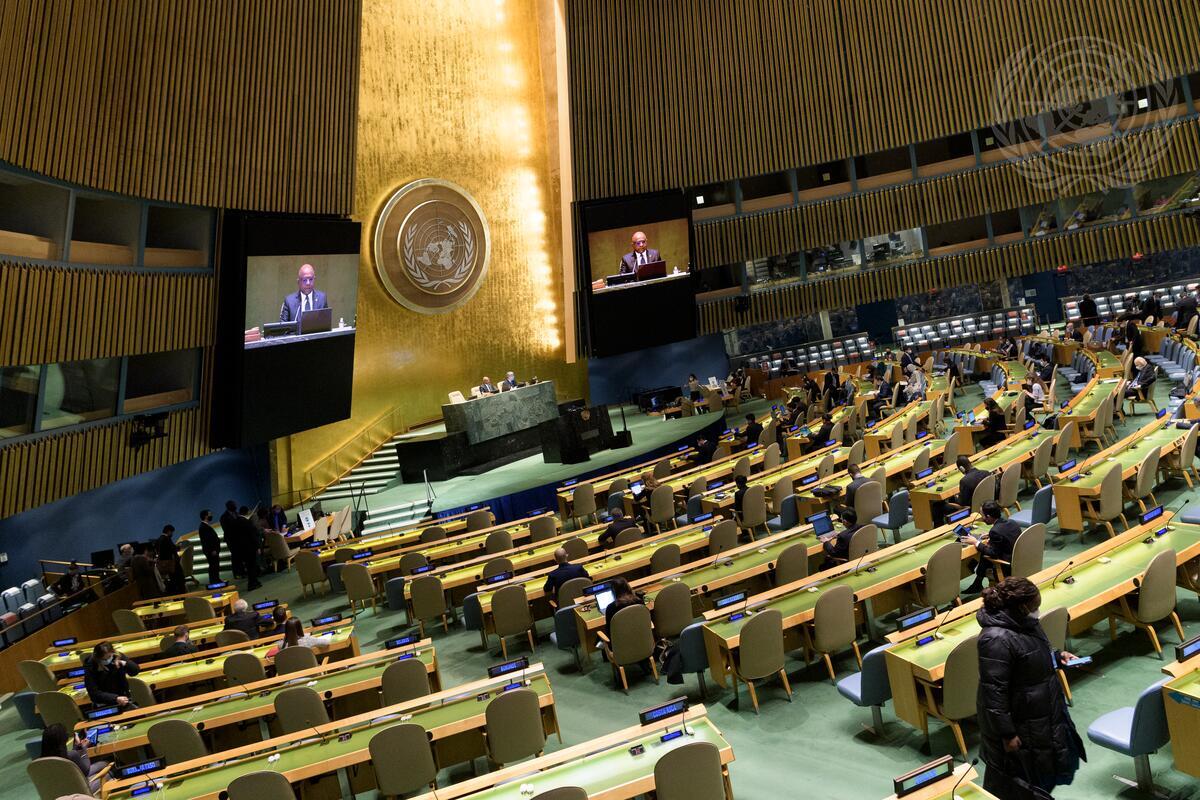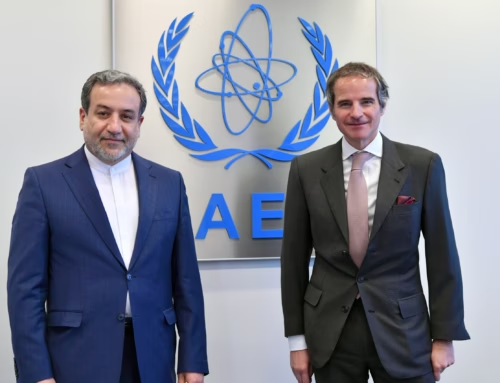Dictatorships to take Israel to International Court of Justice
In November, the UN General Assembly voted in favor of a proposal by the UN Fourth Committee designed to take Israel’s actions to the International Court of Justice in The Hague.
Dictatorships such as Syria, North Korea and Iran argued for the decision

The UN’s Fourth Committee should actually work for decolonization in the Third World and target the imperialism of the great powers. Its chairman, Mohamed Al Hassan, is from Oman, a country based on Sharia law where human rights advocates are arrested. Photo: United Nations
While Iran’s brutality towards its own people is making world news, Russia’s war in Ukraine and the war in Syria have caused tremendous devastation, 700,000 dead and the two biggest refugee crises since World War II – the General Assembly voted in favor of several anti-Israel resolutions. The Jewish people’s need for security and its several-thousand-year long relationship with Jerusalem was ignored.
The International Court of Justice in The Hague (ICJ) is one of six main judicial organs of the United Nations that resolves disputes between states in accordance with international law and provides advisory opinions on international legal issues. The ICJ consists of a panel of 15 judges elected by the UN General Assembly and Security Council for nine-year terms. The UN’s Fourth Committee should actually work for decolonization in the Third World and target the imperialism of the major powers but has instead become a seat of dictatorships in the Middle East that question the presence of the Jewish population in their region.
The chairman of the UN Fourth Committee, Mohamed Al Hassan, is from Oman, a country where legislation is based on Sharia law and where advocates of human rights are arrested.
The UN resolutions were put together by the Palestinian Authority and Muslim dictatorships such as Qatar, Saudi Arabia, and Syria, and with the support of communist states such as Cuba and North Korea.
Cuba’s representative said the resolutions expressed the General Assembly’s deep concern, while the representatives of Bangladesh and Venezuela—whose countries rank close to absolute bottom in the world in terms of corruption and press freedom indicators—praised the proposal.
Iran, which finances a range of terrorist movements across the Middle East, then claimed that Israel is the cause of all conflicts in the region.
Keeping the conflict going
The General Assembly also voted to extend UNRWA’s mandate until 30 June 2026 and to increase support for Palestinian refugees. While UNHCR, which handles all other refugee situations in the world, works to integrate refugees into their new homelands, UNRWA aims to perpetuate Palestinian refugee camps as a means of keeping the Middle East conflict alive.
In another draft resolution, Israel’s right to the “Syrian Golan” was criticized. In March 2019, the United States recognized Israel’s right to the area, which they captured in 1967 in connection with the third Arab attempt to wipe out Israel and throw the Jews into the sea.
The UN committee also requested the UN Secretary General to “protect the property of the Palestinian refugees”. After 1948, there were about 700,000 Palestinian refugees who’d left their homes at the urging of the Arab leaders, and about the same number of Jewish refugees who were expelled from Arab countries but were welcomed and absorbed by Israel, while the assets of the Jewish refugees were largely confiscated by the Arab countries they were driven out from.
– As long as the Palestinians continue to receive support from an immoral, politicized anti-Israel majority in the UN, they will never make any concessions necessary for reconciliation and peace, stated Israel’s UN Ambassador Gilad Erdan when the UN General Assembly voted on the proposal.
Israel the only democracy
Describing Israel as the only vital, liberal democracy in the Middle East, Gilad Erdan said that by supporting the lies of the surrounding Arab countries, the UN committee is showing the Palestinians that they can continue to spread their culture of hate while denying Israel’s right to exist.
He recalled that when the United Nations voted 75 years ago to establish a Jewish state, the Palestinians immediately rejected that plan “and tried to kill all the Jews in Israel.”
– Since then, they have rejected every peace plan ever presented, – emphasized Israel’s UN ambassador, condemning counterproductive resolutions that support the destructive attitude of the Palestinians. Gilad Erdan also noted that Palestinian authorities have not stopped paying hundreds of millions of dollars to terrorists and that in the last 11 months thousands of Palestinian terrorist attacks have been carried out.
The US representative pointed out that the issue is among the most debated topics at the UN and said it is time to abandon resolutions biased against Israel.
Libya, Turkey, Yemen, Indonesia, Kuwait, Qatar, Sudan and Malaysia continued their attacks on Israel and were subsequently supported by Arab League observer Nasria Elardja Flitti, who accused Israel of apartheid practices.
Bias blocks progress
Of the EU countries, only Austria, the Czech Republic, Italy and Germany voted against the proposal despite the fact that the European continent initiated the Crusades, the Inquisition, the pogroms and the Holocaust and in just over a hundred years has seen Europe’s Jewish population almost completely eliminated.
In recent years, the UN has elected repressive regimes to important UN bodies with mandates to protect human rights, promote the rights of women, promote education and freedom of the press. 68 percent of the UN Human Rights Council consists of dictatorships, writes the human rights organization UN Watch.
Since 2015, 125 of 180 resolutions passed by the UN General Assembly have been directed against Israel. Only 19 resolutions have dealt with Russia, while 22 resolutions have concerned North Korea, Syria or Iran together.
Former UN Secretary-General Ban Ki-moon said the organization has a “disproportionate” volume of resolutions against Israel, which he believes has “hindered the UN’s ability to fulfil its role effectively”. In a speech to the UN Security Council at the end of 2016, Ban said: “For the last decade, I have argued that we cannot have a bias against Israel at the United Nations.”
His predecessor, Secretary-General Kofi Annan, appealed in December 1999 for better treatment of Israel at the UN, saying in a speech that measures taken by member nations to isolate Israel and single out the country by using the harshest criticism have made the UN organization stand out as completely biased.


